|
In an increasingly globalized world, understanding cultural nuances has never been more important. While language barriers are often navigated with translation tools or multilingual communication, non-verbal cues like hand gestures can easily be misunderstood, leading to unintentional offense. What might be a harmless or even positive gesture in one country could be highly offensive in another.
This blog post explores ten common hand gestures that can cause misunderstandings around the globe, helping travelers navigate social interactions with greater cultural sensitivity. 1. The Thumbs Up: In the Middle East, West Africa, Iran, Greece, Italy and Sardinia this gesture, which is a sign of approval in many Western countries, can be interpreted as an obscene gesture in these regions, akin to giving the middle finger. 2. V-Sign (Palm Inward): This considered offensive in commonwealth nations like UK, Ireland, Australia, New Zealand. When the V-sign (peace sign) is made with the palm facing inward, it is considered very offensive, similar to flipping someone off. This dates back to the 1900's and is frequently used to signify defiance (especially to authority), contempt, or derision. 3. "Okay" Sign (Thumb and Index Finger Forming a Circle): In Brazil this gesture is considered very rude and vulgar, akin to giving someone the middle finger. In Germany, Russia and Turkey, in some contexts, it can be interpreted as offensive or derogatory. 4. The Moutza (Open Palm Facing Out, Fingers Spread): In Greece, Pakistan and parts of Africa this gesture is highly offensive and dates back to ancient times. It is akin to telling someone to "go to hell." 5. The Fig (Thumb Tucked Under the Index and Middle Fingers): In Turkey, Russia, Indonesia this gesture is seen as a rude and a sexual insult. 6. Chin Flick (Back of Hand Under Chin and Flicking Fingers Outward): In Italy, Belgium, France and Tunisia: This gesture signifies dismissal or disdain and is considered very impolite. 7. Horn Sign (Index and Pinky Fingers Raised, Other Fingers Folded): This is considered offensive in Italy, Spain, Portugal and Brazil. In Italy it is specifically known as the "corna." It implies that someone’s partner is unfaithful, a serious insult. 8. Crossed Fingers (Fingers Forming an X): In Vietnam this gesture, often used for wishing good luck in the West, resembles female genitals and is considered highly inappropriate. 9. Pointing: In various Asian countries pointing at people is considered very rude and disrespectful. 10. Bowing Head and Raising Fist (Similar to a Salute): In Greece this gesture can be interpreted as a sign of defiance and is considered offensive. As we explore the diverse ways in which hand gestures are interpreted across different cultures, it becomes evident that what we communicate non-verbally can have a profound impact. Awareness and respect for these differences can foster better interpersonal relationships and enhance cross-cultural understanding. Next time you travel or meet someone from a different background, keep these hand gestures in mind. A little knowledge goes a long way in ensuring that your gestures are seen as intended, making your interactions smoother and more respectful. Remember, a gesture might speak louder than words, but the key is ensuring it's saying the right thing. Did I miss any? Let me know what others I should add to this list.
0 Comments
Traveling offers scores of enriching experiences, from exploring new landscapes to tasting exotic cuisines. However, amidst the excitement of discovering unfamiliar territories, it's crucial to recognize the significance of understanding and respecting the culture of a destination. Culturally sensitive travel not only enhances the overall experience but also fosters global harmony and mutual respect. In this article, I will delve into why it's essential to embrace and honor the cultural nuances of the places we visit.
Avoiding Cultural Misunderstandings: Respectful behavior is universal, but the expression of manners can vary significantly from one culture to another. What may be considered polite in one country could be perceived as offensive in another. Understanding the local customs helps travelers avoid unintentional cultural faux pas, ensuring harmonious interactions with locals. Preserving Cultural Heritage: Every destination has a rich history and cultural heritage that deserves preservation. By respecting local traditions and practices, travelers contribute to the safeguarding of these invaluable aspects of a community's identity. Tourism should be a force for good, supporting cultural conservation rather than inadvertently eroding it.
Supporting Responsible Tourism:
Responsible tourism goes hand in hand with cultural sensitivity. Being aware of the environmental and cultural impact of your presence as a traveler allows you to make choices that minimize negative consequences. This may include supporting local businesses, respecting natural landscapes, and being mindful of the community's needs. Creating Positive Interactions: When travelers show respect for local customs, traditions, and languages, it opens doors to positive interactions with the local community. Whether sharing a meal, participating in a festival, or simply engaging in conversation, these interactions create lasting memories and contribute to building bridges between people from different parts of the world. My mission at Ace Travels is to create a kinder world one traveler at a time. I am fulfilling this mission by curating culturally immersive experiences that not only help to create memorable experiences for my clients but also connect them to people and communities they may have never imagined getting to know and love. It’s my belief that respecting the culture of a destination is not just a courtesy but a responsibility for every traveler. By embracing cultural sensitivity, travelers become ambassadors of goodwill, leaving a positive impact on the places they visit and bringing the world closer together. As you embark on your next adventure, remember that every journey is an opportunity to learn, connect, and contribute to a more culturally aware and harmonious global community. If you are interested in planning a trip and would like assistance, please feel free to reach out by clicking here. Happy travels and may your 2024 be a year filled with cultural discoveries and rich experiences. As the world turns the calendar page to the promising year of 2024, a global tapestry of culture and tradition unfolds throughout the months. From vibrant and exuberant festivals to solemn and spiritual ceremonies, each month brings with it a unique opportunity to experience the rich diversity of a different county’s cultural heritage. Travelers and cultural enthusiasts prepare to embark on a year-long journey around the world, as we dive into some of the most captivating and authentic celebrations taking place each month. Join me as we explore the cultural tapestry of 2024, highlighting a kaleidoscope of festivities that are bound to inspire your wanderlust and deepen your appreciation for the cultural wonders that unite us all. January - Ring in the Lunar Year across East Asia
The streets come alive with lion dances, parades, music, and public festivities. Many East Asian cities host vibrant Chinese New Year festivals, like the famous Chingay Parade in Singapore or the Nian Festival in Hong Kong. In China, the capital Beijing and southern cities like Guangzhou put on elaborate flower fairs and cultural events. The holiday is also celebrated across Malaysia, Vietnam, Korea, Thailand and by Asian populations worldwide. Regardless of location, Lunar New Year revolves around key traditions like cleansing the home, paying off debts, wearing red, lighting firecrackers, and sharing prosperity and blessings for the year ahead. February- Dance your nights away at Carnival in Brazil
The Rio Carnival is truly one of the world's greatest parties and cultural spectacles. In 2024, after the challenges of recent years, the city is sure to put on an unforgettable celebration filled with the amazing sights, sounds and rhythm that makes Carnival legendary. Samba your way to Rio in 2024 for a once-in-a-lifetime Brazilian cultural immersion! March- Celebrate good over evil at the Holika Dahan Ceremony in India
evil. Witness this vibrant tradition across India on the eve of the colorful Holi festival in March 2024. April - Visit the Cherry Blossom Festival in Japan
Historic sites like Osaka Castle and Mount Yoshino also draw crowds for cherry blossom viewing. More offbeat festivities happen too, like the Kawazu Sakura Festival's illuminated pink trees. Sapporo's snow festival coincides with some late-blooming cherries. No matter where you travel in Japan during sakura season, you'll find food stalls, performances, cherry blossom-themed wares, and endless blissful photo ops. Don't miss Japan's fleeting yet magnificent spring spectacle in 2024. Follow the cherry blossom forecasts to catch the trees at their pinkest peak. May - Embrace World Sacred Music in the Imperial City of Fez
June-Usher in the summer solstice at the St. John Festival in Alicante, Spain
summer festival season. Visitors can immerse themselves in Valencian culture and street partying at this beloved Spanish solstice tradition next June. July -Head to Peru to witness the reenactment of a Traditional Inca Ceremony
acts to honor Inti. Participants in the ceremony wear elaborate and colorful Inca costumes, adding to the authenticity of the event. These costumes are made with fine textiles and feature intricate designs. Inti Raymi attracts large crowds of both locals and tourists who gather to witness the spectacle. Tickets for the main event are limited, so it's advisable to purchase them well in advance if you plan to attend. August-Immerse Yourself in the Arts at the Edinburgh Festivals
Book Festival is a paradise for literature buffs with author talks, book signings and literary discussions. The Edinburgh Art Festival spotlights leading contemporary art. There's also the Edinburgh Jazz & Blues Festival, Politics Festival, Storytelling Festival and more. The festivals attract talent and attendees from around the world for a month of magic in Edinburgh's streets, gardens, museums and theaters. Visitors can immerse themselves in a whirlwind of comedy, theater, literature, art and music from morning to night. The 2024 summer festival season promises spectacular cultural discoveries and non-stop entertainment. September - Enjoy a few pints of beer in Munich, Germany
different Munich brewery. These tents range from the traditional and cozy to the massive and raucous. Inside, you'll find long communal tables, live music, and plenty of hearty Bavarian food, music, singing and dancing. Many festival-goers, as well as the staff in the beer tents, wear traditional Bavarian clothing. If you would like to attend Oktoberfest be prepared for large crowds, so it's a good idea to plan ahead and make necessary reservations if you wish to fully enjoy the festival. It's also advisable to book a table in the beer tents well in advance, especially for popular weekends, as they can fill up quickly. October - Celebrate the Festival of Lights under the new moon in India
legends of good triumphing over evil. Statues of the goddess Lakshmi are worshipped for prosperity. Special sweets like gujiya and barfi are made for Diwali. Major celebrations happen in Varanasi, Jaipur and New Delhi, but festivities span every corner of India. From towering city displays to small village jubilations, Diwali brings the essence of Indian culture—light, family, mythology and meaning—to life. Partake in the uplifting celebrations of Diwali 2024 to experience India at its brightest and most jubilant. November - Honor your deceased loved ones Mexican style
December - Celebrate Christmas Bahamian Style
As the year 2024 unfolds, the global stage promises a magnificent showcase of cultural diversity and traditions. From the vibrant rhythms of Carnival in Rio de Janeiro to the serene lantern-lit nights of Diwali in India, every month offers an opportunity to connect with the rich tapestry of a different heritage.
These celebrations bring us together, transcending borders, languages, and differences to celebrate the shared human experience. So, as you plan your travels and experiences for the year ahead, remember to mark your calendar for these cultural gems around the world, as they offer not just a glimpse into history and heritage, but a chance to create lasting memories and forge connections that span continents. If you are interested in planning a trip to experience any of these events and would like assistance, please feel free to reach out by clicking here. Happy travels and may your 2024 be a year filled with cultural discoveries and rich experiences Have you ever wondered how the celestial dance of the stars impacts your life's journey and travel choices? Astrology, a mystical art spanning centuries, offers profound insights into the predominant energies shaping our personalities and destinies. Each zodiac sign embodies its own qualities, traits and characteristics giving it a personality of its own. Your zodiac make-up plays a role in how you move about the world, your desires, your ambition and so much more. The energy and characteristics of different destinations appeal to different zodiac signs. What if you could explore the world through the lens of your zodiac sign and unlock the hidden wonders that align with your unique travel style. Whether you're an adventurous Aries, a dreamy Pisces, or any other zodiac sign in between, let the stars guide your wanderlust and dive into destinations tailored to your travel personality. As a travel planner and so meone who is learning about the wonderful world of Astrology, I have my thoughts on each zodiac sign and its travel style. Check your zodiac sign below! Aries - The Bold Adventurer Aries embraces the world with boundless energy and an insatiable appetite for exploration. They are seeking travels that ignite their soul and create unforgettable memories. Motivated by adrenaline and a thirst for new experiences, Aries travelers seek out thrilling escapades. From conquering challenging hikes to bungee jumping off towering cliffs, they thrive on adventure and adrenaline rushes. While they love exhilaration, they also want to embrace the wilderness and natures retreats. The natural wonderlands perfectly align with their energetic and fearless spirit. Taurus - The Serene Wanderer For the grounded and nature-loving Taurus traveler, serenity is the ultimate goal. These earthy souls crave peaceful retreats and places that allow them to connect with nature. A travel guide should lead them to tranquil destinations where they can unwind in luxurious surroundings and revel in the beauty of the natural world. Taurus’s are also indulgent so it would only make sense to include experiences that allow them to immerse themselves in the art of fine dining, savoring delectable cuisines and awaken their taste buds! Gemini - The Curious Explorer With a dual nature, Gemini travelers are all about curiosity and learning. They seek destinations that offer cultural richness and intellectual stimulation. A travel guide should take them to cities where they can immerse themselves in art, history, and diverse experiences that feed their ever-curious minds. As one of the most social signs in the zodiac, an itinerary that places them in a thriving social scene and provides spontaneity will feed their soul. Cancer - The Nostalgic Roamer  Cancer travelers are driven by emotions and nostalgia, seeking destinations that hold sentimental value or connect them to their roots. A travel guide should guide them to serene retreats where they can embrace their nurturing side and find comfort in the beauty of the surroundings. Cancer travelers also like to deepen their cultural understanding and create lasting memories. As such destinations that allow them to explore the realm of cultural immersion feed their curiosity. Leo - The Dazzling Trendsetter For the confident and glamorous Leo traveler, it's all about being in the spotlight. They thrive in vibrant destinations that offer luxury, entertainment, and opportunities to shine and revel in the limelight and experience the world in style. Leo is also the natural ruler of the fifth house in astrology which oversees our unique creative expression. As such it would only make sense to immerse them in artistic havens or bohemian neighborhoods with vibrant surroundings where a Leo’s prowess can flourish. Virgo - The Meticulous Explorer  Virgo travelers are detail-oriented and analytical, seeking destinations that offer opportunities for self-improvement, wellness, and beauty. A travel guide should lead them to serene havens where they can indulge in holistic practices, yoga retreats, and embrace their inner peace. They are also seeking refined atmospheres, to savor exquisite cuisines and marvel at intricate details that are captivating. Their intellectual curiosity and thirst for knowledge will also lead them to destinations that inspire learning and exploration. Libra - The Harmonious Nomad Balanced and seeking harmony, Libra travelers are drawn to destinations that boast beauty and culture. A travel guide dedicated to Libras will guide them to enchanting places where they can revel in art, architecture, and bask in the enchanting ambiance. And because they are ruled by Venus, the planet of love, romance, money, beauty, and art, they want to indulge in tranquil escapes that offer serenity and relaxation allowing Libra’s need for peace and harmony to be nurtured. Scorpio - The Intrepid Seeker For the passionate and mysterious Scorpio traveler, soul-searching experiences are a must. A travel guide for Scorpios will take them to thrilling destinations where they can embrace the wild and delve into their deepest desires. As a sign ruled by both Mars and Pluto, the planet of transformation, serene destinations that offer solace and spiritual rejuvenation are perfect for Scorpios seeking inner transformation. Those destinations allow them to embrace the transformative energy and delve into self-reflection and personal growth. Sagittarius - The Wanderlust Dreamer Sagittarius travelers have an insatiable thirst for exploration and seek places that broaden their horizons. A Sagittarius tailor made guide should lead them to cultural crossroads where they can indulge in diverse traditions and ignite their sense of adventure. Additionally, as a Sagittarius traveler, the call of the wild beckons you to explore extraordinary frontiers where nature's magnificence unfolds before your eyes. Expedition frontiers offer a profound sense of adventure, igniting your curiosity and passion for exploration. Capricorn - The Ambitious Voyager Driven and ambitious, Capricorn travelers seek destinations that offer opportunities for growth and success. A travel guide tailored to Capricorns should guide them to bustling urban landscapes where they can network, pursue their goals, and embrace the spirit of achievement. The ambitious and intellectually inclined Capricorn will also revel in destinations that provide the opportunity to connect with ancient wisdom and unlock centuries old secrets. Finally, to escape from the hustle and bustle of everyday life, serene landscapes provide the ability to find solace and reconnect with their inner selves. Aquarius - The Visionary Explorer Innovative and curious, Aquarius travelers are drawn to unique and progressive destinations. A travel guide tailored to an Aquarius will have them embark on an extraordinary escapade that aligns with their innate Aquarian spirit of exploration and innovation. As progressive as they are, Aquarians are also deeply philanthropic. Destination where opportunities for giving back and making a positive impact will provide ample ways to contribute to humanity. Pisces - The Dreamy Voyager Imaginative and sensitive, Pisces travelers seek destinations that inspire their creativity and spirituality. A Pisces tailored travel guide should lead them to tranquil escapes where they can connect with their inner selves and immerse themselves in enchanting beauty. As a water element, Pisces seek serene and enchanting coastal experiences. Coastal destinations offer a harmonious blend of natural wonders, charm and a sense of tranquility that aligns with the Pisces spirit. So, are you ready to embark on a cosmic journey like no other? Did this get your travel juices flowing?
No matter which zodiac sign guides you through life, our Zodiac-Inspired Travel Guides have something extraordinary in store for every traveler. Embrace your unique traits, follow the stars, and let our curated adventures ignite your wanderlust like never before. With each destination tailored to your zodiac sign's personality, your next journey is destined to be nothing short of magical. So, are you ready to explore the cosmos with us? Your celestial adventure awaits! Click below to find your zodiac inspired guide! Welcome, fellow adventurers, to a whirlwind exploration of the vibrant world of travel! Whether you're a seasoned globetrotter or a curious wanderer, it's time to dive deep into the contrasting realms of vacationers and travelers. With a special focus on cultural and immersive travel, let's embark on a journey that will broaden our horizons and ignite our passion for discovering the unknown.
The Relaxation Seekers: Vacationers Picture this: you are lounging by a crystal-clear pool, cocktail in hand, toes buried in the sand. Ah, the blissful life of a vacationer! These individuals seek respite from the daily grind, longing for relaxation, pampering, and indulgence. And who can blame them? After all, life should be about unwinding and enjoying the finer things. Vacationers gravitate towards all-inclusive resorts, luxury cruises, and destinations known for their pristine beaches. They prioritize comfort and convenience, embracing a well-deserved break from responsibilities. For them, travel is a chance to recharge their batteries and return home with a rejuvenated spirit. The Explorers of the Soul: Travelers Now, let's shift our gaze to the thrill-seeking souls who yearn for something more. Enter the travelers! These intrepid individuals possess an insatiable curiosity about the world, eager to immerse themselves in new cultures, traditions, and experiences. They believe that travel is not just a vacation but a transformative journey of self-discovery. For travelers, cultural and immersive travel is the heart and soul of their adventures. They venture off the beaten path, seeking connections with locals, learning their customs, and trying authentic cuisines. Their itineraries are brimming with visits to historic landmarks, hidden gems, and lesser-known neighborhoods, painting a vivid tapestry of the destination's essence. Embracing the unknown, travelers cherish serendipitous encounters, finding beauty in the unexpected. They may choose homestays, community-based tourism, or volunteer opportunities to foster meaningful connections and give back to the communities they visit but are not limited to just this. Believe it or not many travelers also appreciate beautiful and luxurious accommodations. Either way it's through these experiences that travelers truly grow and develop a profound appreciation for the world's diversity. Finding Common Ground: While vacationers and travelers may seem worlds apart, they both share a common goal: to escape the monotony of daily life and indulge in memorable experiences. It's the approach that sets them apart, with vacationers seeking relaxation and travelers seeking adventure. Cultural and immersive travel acts as a bridge between the two. Even the most dedicated vacationer can enhance their journey by immersing themselves in the local culture, tasting authentic cuisine, or engaging in a cultural workshop. Likewise, travelers can embrace moments of relaxation, taking a pause to bask in the beauty of their surroundings. In this vibrant tapestry of vacationers and travelers, cultural and immersive travel stands as the connective thread that weaves together experiences, memories, and personal growth. Whether you find solace in the tranquility of a luxury resort or embark on a thrilling odyssey of cultural exploration, the world awaits your discovery. So, fellow wanderers, as you plan your next adventure, consider how you want to shape your travel experience. Be intentional with your travel plans. Embrace the relaxation of a vacation, but also open your heart and mind to the wonders of cultural immersion. Let's celebrate the diverse ways we can embrace travel and create a world where wanderlust knows no boundaries. Happy exploring! Travel!! Ahhhhhh, travel. That elusive thing everyone wants to do but is afraid to do so but are always concerned about the price tag.
Here is the real deal. Travel doesn’t have to be expensive unless of course you are a luxury traveler. But even then, you are getting a certain value for your expense. But who doesn’t want to minimize travel expenses, right? I would assume that luxury traveler wants to save if he/she can too. Below are three ways to save money for or during your travels. Credit Cards: Most people have and use credit cards. Why not exchange one of your cards for one that rewards your purchases with miles and/or travel points. While I don’t advocate running up your credit cards you can use them to pay for your monthly bills (which you would have to pay anyway) and get rewarded in the process. Add these to the miles you are accumulating from being part of the travel rewards loyalty programs and BINGO…you are on the road to some free travel! I follow a podcast called ChooseFI where they talk about the best methods for using credit cards to essentially get free travel. They also have a website and have an entire section dedicated to this subject. They even have a free course for it. Check it out! It’s extremely informational and even I have learned a few things. And If you travel for business and are required to use your own credit cards to pay for your travel, HELLLLLOOO, this is an amazing way to rack up on those miles or points for basically nothing. Additionally, find a credit card that doesn’t charge a foreign transaction fee. Credit card issuers sometimes charge foreign transaction fees on transactions made and processed in a foreign currency or passing through a foreign bank. The charge is a percentage of the amount of the transaction, typically 3%. So consider a credit card that doesn’t assess foreign transaction fees — you’ll thank me on your next international trip. Nerdwallet.com recently published a list of the 6 Excellent No Foreign Transaction Fee Credit Cards in 2022. Some on the list are travel rewards too. Talk about killing two birds with one stone!! Get Rail Passes Rail passes (like Eurail) are a great way to save money when it comes to train travel, especially in Europe. If you’re traveling around the region for a while, rail passes will likely be much cheaper than just booking individual trips. If you are booking individual trips, booking ahead of time can usually save you about 50% of the cost of a train ticket. However, that fixes you to a set timeline. If you don’t want to be tied into a fixed schedule, rail passes can save you a lot of money while giving you the flexibility you need. If you live in the US and want to take advantage of train travel, Amtrak is an option. While living in NYC my friends and I would take the Amtrak train to Montreal for long weekends. It was less expensive than a flight, easier than going to the airports (especially in NYC) and a smooth trip. There is a great blog article at Koopy.com entitled “12 Clever Ways to Save Money On Your Next Amtrak Trip” Consider an e-SIM Card in Destination: Never heard of e-SIM cards? They are the next evolution of the SIM card. It’s a SIM card that is embedded into your device, so you don’t require a physical SIM card. You can activate it by installing the “eSIM profile” of a new operator. It’s important to note this only works with unlocked devices. With an eSIM card you can use multiple operators and subscribe simultaneously several data plans to suit your needs: when travelling, working from home or remotely. What’s even better about this is that it can be installed into your phone or laptop. In some cases, you can save up to 90% off roaming costs. One provider of e-SIM cards and service is Ubigi. They offer free e-SIM profiles and one-off (valid for 30 days), monthly and annual plans. For instance, you can purchase 3 Gigabytes of Data in France for $8 or 10GB for $19. It’s all convenient and prepaid with no commitments. Savvy travelers who are always on the lookout for a good deal and can save money by following even just a few of these simple tips. As you travel more often you will learn new tips and tricks that resonate with you. Every little bit helps. So, can traveling be expensive? Absolutely, but it can also be inexpensive and doesn’t require backpacking and staying in hostels. If tips and tricks to saving money before and during your travels check out my guide “Ultimate Guide To Reducing Your Travel Costs.” From family getaways to cultural immersions, there are so many different types of group travel experiences to choose from. Group travel is a great way to explore new places, make new friends, and create memories that will last a lifetime. Whether you're traveling with your family, friends, or a group of strangers who share your interests, there's something special about experiencing the world with others. So, let's take a look at some of the different types of group travel options that are available:
These are just a few examples of the many niche travel options that are available. Whatever your interests, there's sure to be a travel experience that caters to your passions and hobbies.
No matter what type of group travel experience you're interested in, there's sure to be an option that's perfect for you. So, start exploring your options today and get ready to create some unforgettable memories with your fellow travelers. Group trips are often viewed as inflexible and rigid, with a strict itinerary and little room for deviation. However, this simply isn't true. In fact, group trips can be incredibly flexible and allow for a great deal of personalization and individualization.
One of the major benefits of group travel is the convenience and organization it provides. Instead of trying to plan and coordinate every detail of your trip yourself, a group tour operator takes care of all the logistics for you. This can be a huge relief, especially if you're traveling to a foreign country or a destination you're not familiar with. However, just because the tour operator is handling the details doesn't mean you have to stick to a strict schedule. Many group tours offer a variety of optional activities and excursions that allow you to customize your trip and do the things that interest you the most. For example, if you're on a group tour of Europe and you want to spend an extra day exploring a particular city, you can usually arrange to do so with the tour operator. Or, if you're on a group safari and you want to spend more time observing a particular animal, your guide can usually accommodate your request. Another way group trips can be flexible is by offering different levels of accommodation. If you're on a budget, you can opt for a more economical hotel or hostel. If you prefer a more luxurious experience, you can choose a higher-end hotel or resort. Finally, group trips often have a variety of departure dates, so you can choose a time that works best for you. And if you can't find a group trip that fits your schedule, many tour operators are willing to create a custom itinerary just for you. In conclusion, group trips are not inherently inflexible. With the variety of optional activities, different accommodation options, and the ability to customize your itinerary, you have the power to make your group trip as flexible as you'd like it to be. Ace Travels offers a variety of group trips to locations across the world. We can curate each trip to be as personalized as you'd like your experience to be. To learn more about what group trips are currently available click here.
As I get older I do my best to give gifts that have sentimental value or are useful. In a world where the average person continues to accumulate more and more nonessentials or has everything it makes it difficult to determine what to gift someone. I know I fit in this bucket and I am trying my hardest to ensure I only have the items I need or deem functional.
As an avid traveler, anything that can help make my travel experience better is a gift I appreciate. If you have someone on your list who is a wanderluster at heart I have some affordable gift ideas that will surely not get tossed in the donation box or gifted forward. iWalk Compact Portable Charger
riemot Luggage Travel Cup Holder/Caddy
LC-dolida 3D Sleep Bluetooth Headphones and Eye Mask
Dock & Bay Quick Drying Towels
Portable Mini Refillable Perfume Atomizer Bottles
Looking for gift ideas for the traveler in your life? Or maybe you could use one of these genius gadgets to make your next trip even better! Even the most seasoned traveler can pick up new tricks every now and then. Have you ever stumbled on the perfect travel gadget — the thing that turned into the item you now would never dream of leaving the house without? Here are some of my favorites right now. Amazon Kindle
Portable Humidifier
The Paravel Aviator Carry-On Plus
The Riemot Luggage Drink Caddy Behold for the coolest and most functional travel gadget!! Ok picture this.....you are walking through the airport. You are pulling or pushing your luggage with one hand. With your other hand you are trying to juggle your phone, your drink and any other item you may be carrying. Can you see it?
Electronics Organizer
Easy Dry Beach Towels
Travel Shampoo and Conditioner Bars
The Gift of Travel
There’s something so satisfying about finding the perfect travel tool that makes your life a million times easier. We think these gifts are a great place to start! These post may contain affiliate links, which means that Ace Travels may receive a commission if you make a purchase using these links. As an Amazon associate, I earn from qualifying purchases.
|
Amarilis C.From the desk of your travel agent... Archives
June 2024
Categories |
|
Site created by Voyager Websites




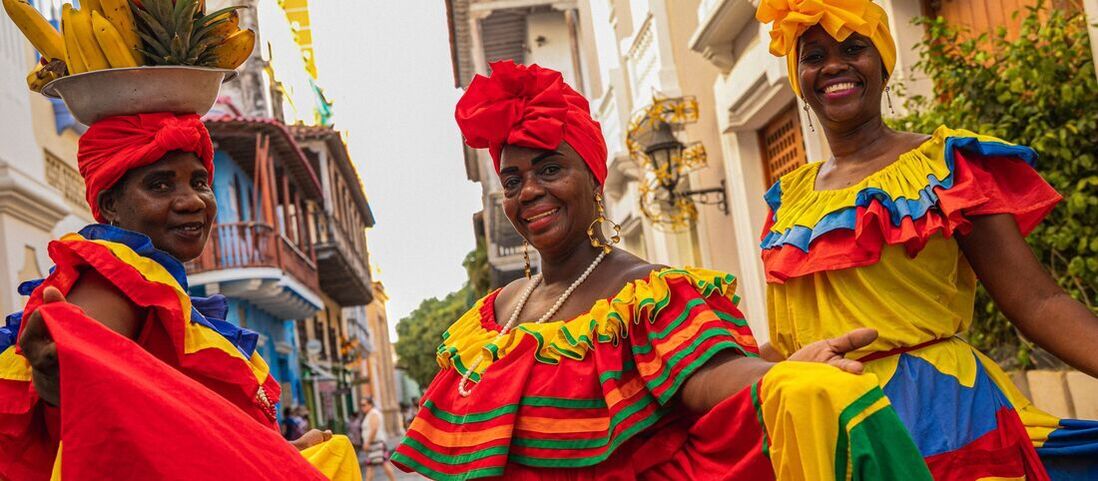
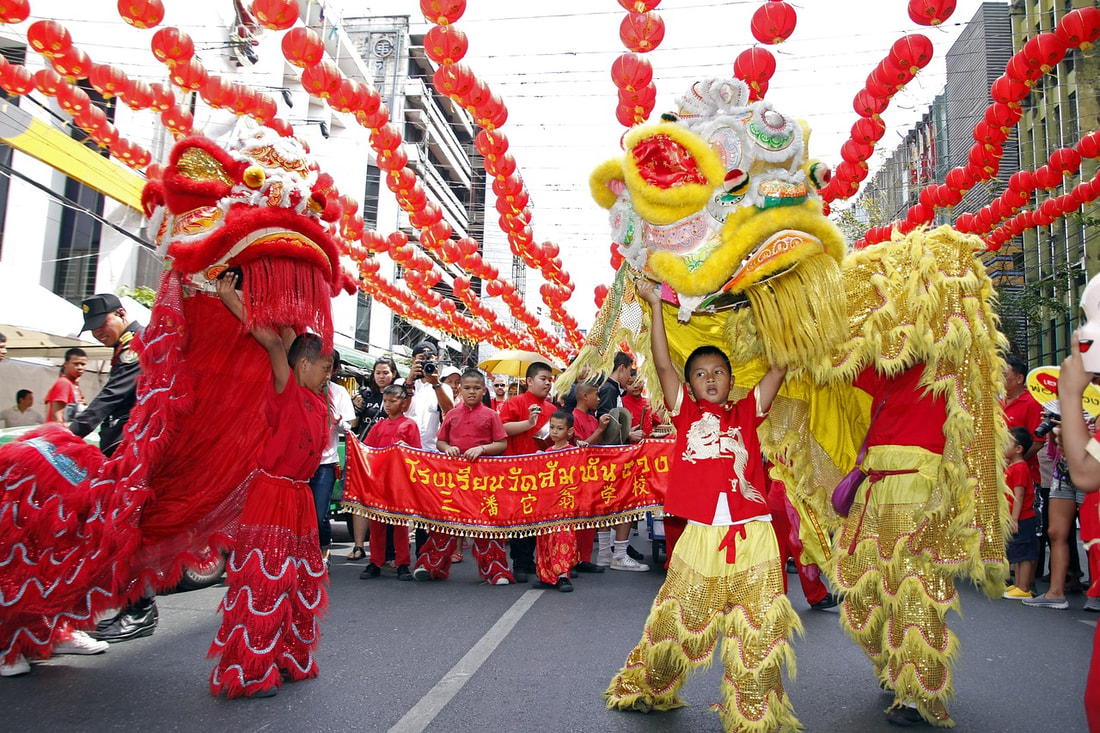
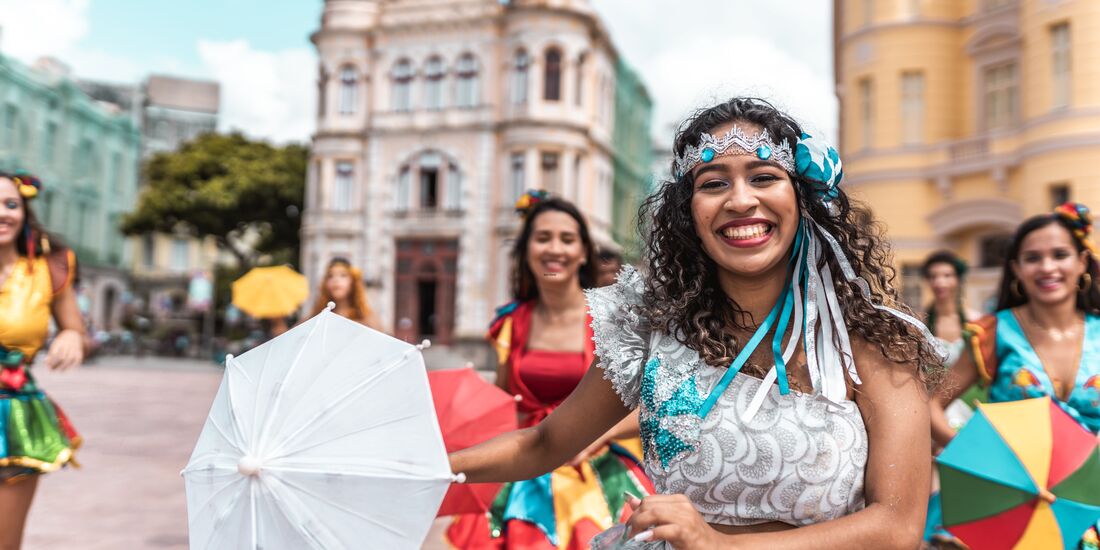




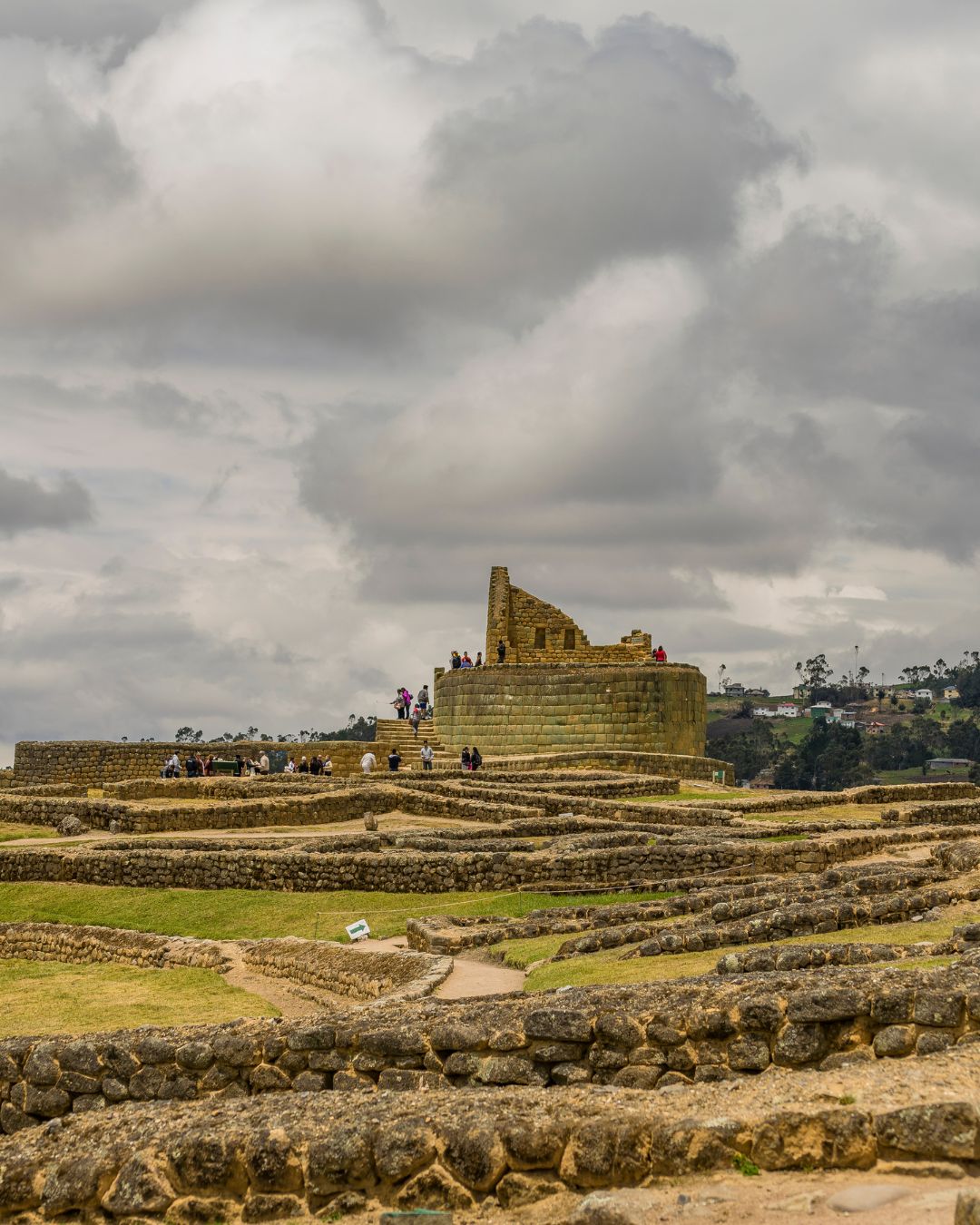
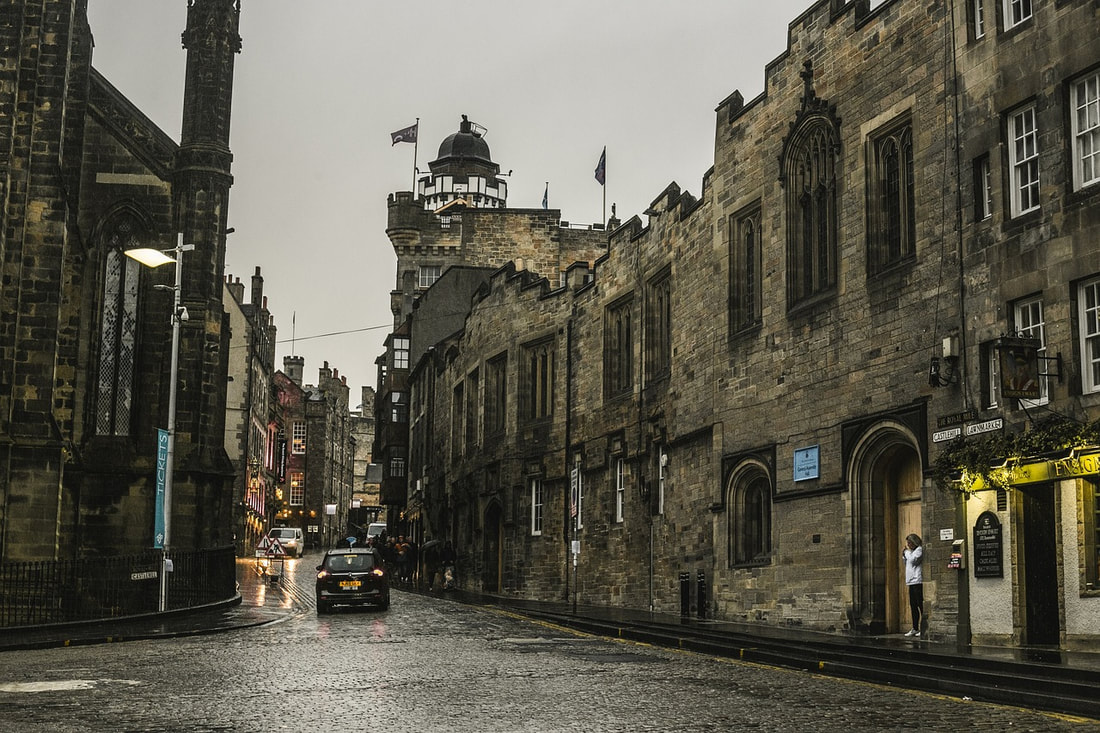















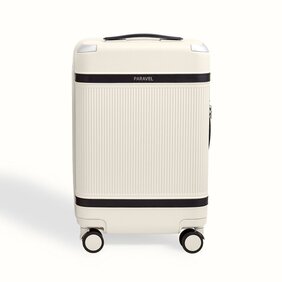
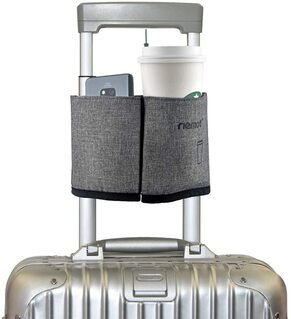
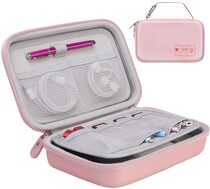



 RSS Feed
RSS Feed



